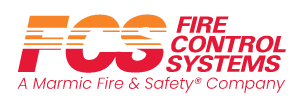Maintaining your fire suppression systems are vital to ensure that they work properly when a fire occurs. Fire suppression systems often work in conjunction with a fire alarm system to provide safety and protection for a building or area. There are many different types of fire suppression systems which include:
- Clean agent systems
- Fire extinguishers
- Wet or dry sprinkler system
- Wet or dry chemical systems
- Backflow preventers
Fire protection systems should receive regular inspections performed by a trained professional. When you commit to a schedule of inspections, small, easy-to-remedy problems that can potentially cause sensors or sprinklers to operate at decreased efficiency or even fail entirely can be fixed before there is an emergency, and larger issues won’t turn into catastrophic ones. Testing the systems on a regular basis will confirm that they will work properly if an emergency occurs.
Inspection
Regular inspections will identify potential problems or malfunctions before they cause any issues. Inspections involve trained technicians visually inspecting equipment like sprinklers and the component parts of fire suppression systems and fire alarms for issues like leaks, corrosion, and damage. A faulty component can cause delayed activation when a fire occurs, allowing it to grow larger before the suppression system is triggered. Also, it can cause a system to discharge when there isn’t a fire. If there is debris covering the detection tubing, the activation temperature may take longer to reach. Chaffing, cracking or any other damage that causes a hole in the tubing can cause the system to discharge whether a fire is present or not.
Testing
Testing involves actually observing whether the equipment functions properly and if integrated systems are working together as they should. A trained professional will know how to recognize when something is off and how to fix the problem so your system will be ready to respond in the event of an emergency.
Keeping your building and its occupants safe from fire means trusting that the network of fire protection equipment you’ve installed will work when it is needed. Call Fire Control Systems today to help you determine what is the best schedule for maintaining your fire suppression systems.







